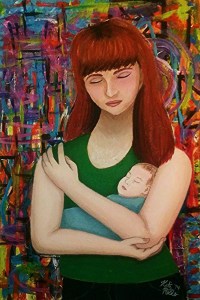Autism Unveiled Week 2

One of the biggest challenges I face is the view of Autism held by many people I meet. It shocks people that I am happy with my neurology. Yes, there are more concrete challenges, but I find ways to make those work for me. Executive functioning, for instance, is an area where I struggle. I make myself lists that are broken down into smaller tasks. This keeps me on track and helps prevent me from becoming to overwhelmed to get from point A to point B.
When I was younger, I struggled a lot socially, because I didn’t understand a lot of the unspoken social “rules” our society operates by. Oddly enough, I finally started making progress socially when I found a group of friends who didn’t mind that I socialized differently. It is hard to pick up on social cues from the outside. Being in a social group made it easier to decipher. I also experience sensory overload sometimes, and when it gets bad, my speech and body movement can shut down. I make sure those closest to me know what to do in that situation. Again, it’s not the Autism itself that makes this so bad, it’s the way people react to it. I have been abused by medical professionals and emergency personnel who’ve assumed I’m on drugs or incompetent.

Probably the best thing about being Autistic is having a community to which I belong. My Autistic friends think like me, and I love when I see something they write online and something just clicks. There are many aspects of NT life that seem almost universal that I don’t relate to well. Sometimes one of my friends on the spectrum will bring something like this up, and I feel like I’m not alone after all.
I think being Autistic has also made me more compassionate, and more willing to *really* listen to other minorities. Knowing what kinds of help and support I need from allies as an Autistic woman has helped me to become a better ally to my friends who fall into other minority groups. A lot of times, it’s just having the ability to say “I don’t understand this, but if this is what you say you need me to do to support you, then this is what I will do.”
Some words about me: Mother, Student, Recovering Addict, Bisexual, and Autistic
These aspects of who I am affect me in various ways. They all influence my art. I have a six-year-old son who may also be on the spectrum (we don’t know yet), I struggled with addiction for 15 years, but have been clean since February 12, 2013. I am a college student, with plans to become an Art Therapist. I was formally diagnosed with ASD in 2011, although I had had my suspicions for several years. Since then, I have included Autism in the scope of my activism, and I enjoy helping to educate people who are curious about Autism.
Kati Mills, Arizona, USA
Kati’s blog
Kati’s facebook page
Kati’s art on etsy
Kati Mills is part of the six-week advocacy project Autism Unveiled Project commencing on April 2, 2015, World Autism Awareness Day.









Hi Kati! The way you speak about yourself is truly inspiring. I think a lot of people, with or without Autism, could learn a lot from you about self-acceptance. You make a very interesting point when you say that the fact that you have Autism is not your most difficult challenge, but rather it is the way other people view you and treat you that is the bigger issue. I think that is such an important thing to realize – a lot of it is an issue of perception and judgment. The first step to a better world is to accept that people are not all the same, but that does not make anyone inferior. Thank you so much for being so candid and honest about your experiences. Your art is a beautiful expression of who you are. Good luck in your journey to become an art therapist! You have a perspective that I feel would be highly valuable to the field, and I wish you the best in your endeavors!
Kati – It really resonates with me how you describe your challenge not being autism but with the way society assumes it should affect your life. What advice would you give to those who are not autistic in better educating themselves about it and their family and friends who are?